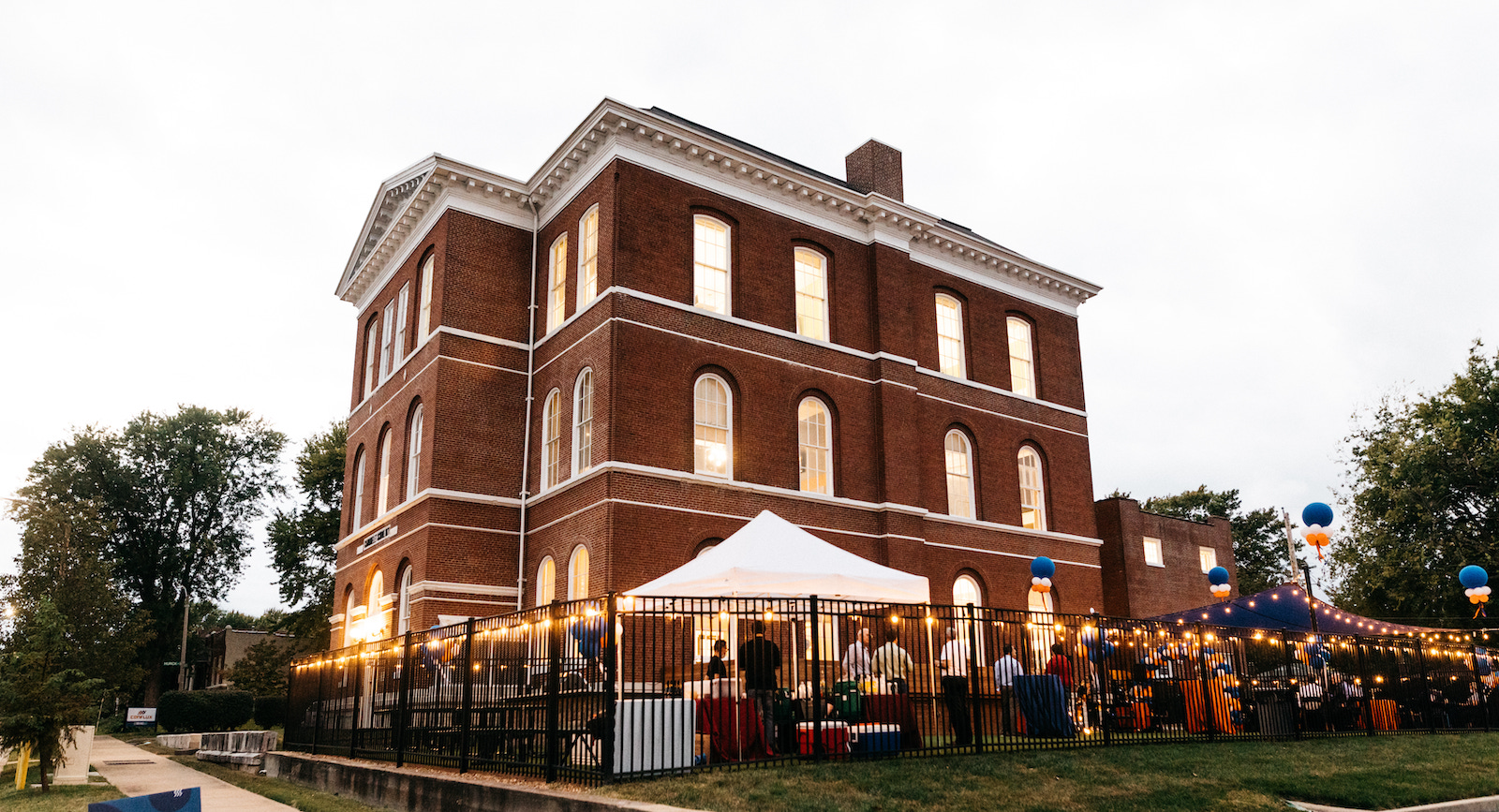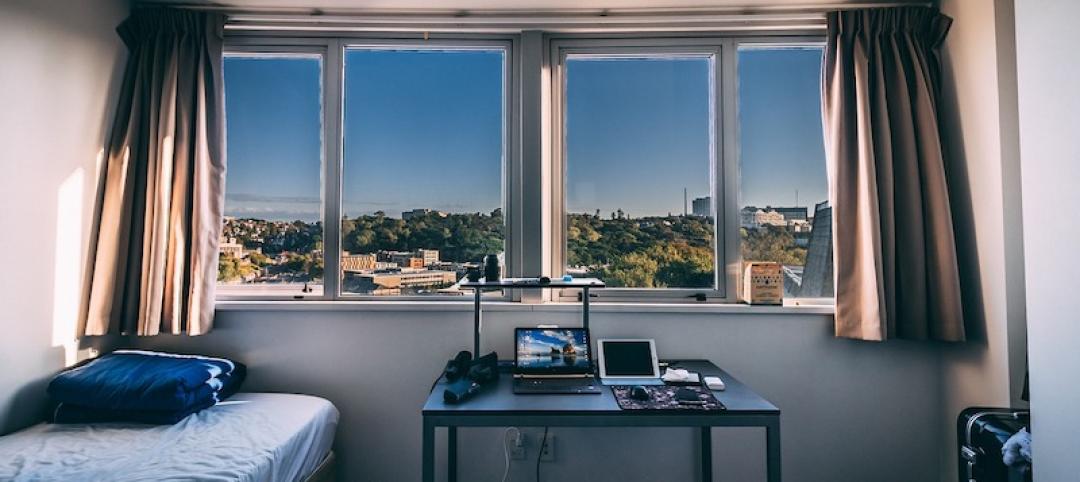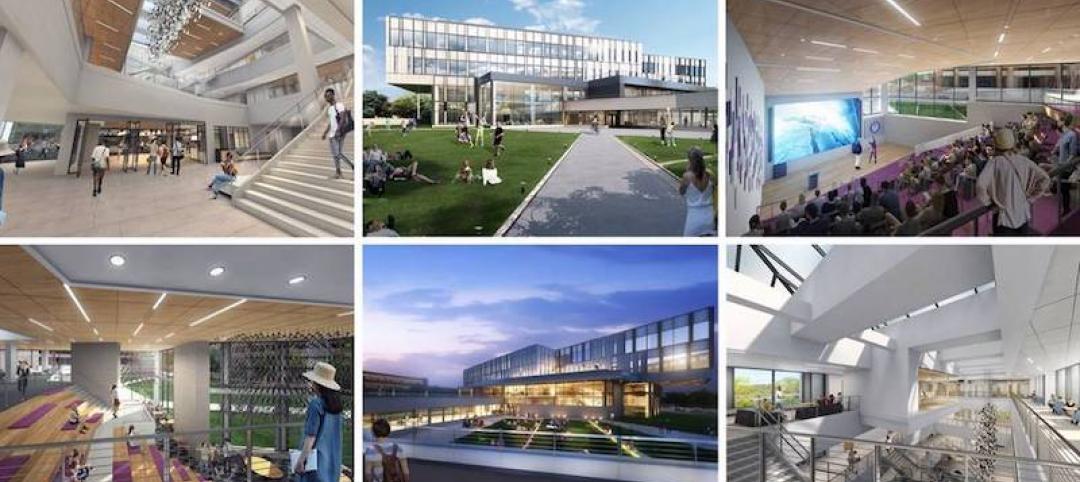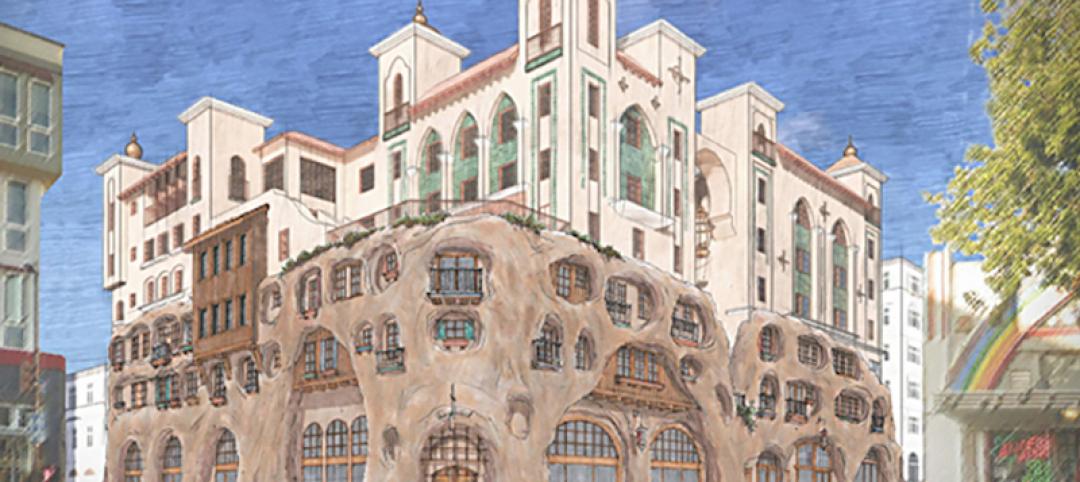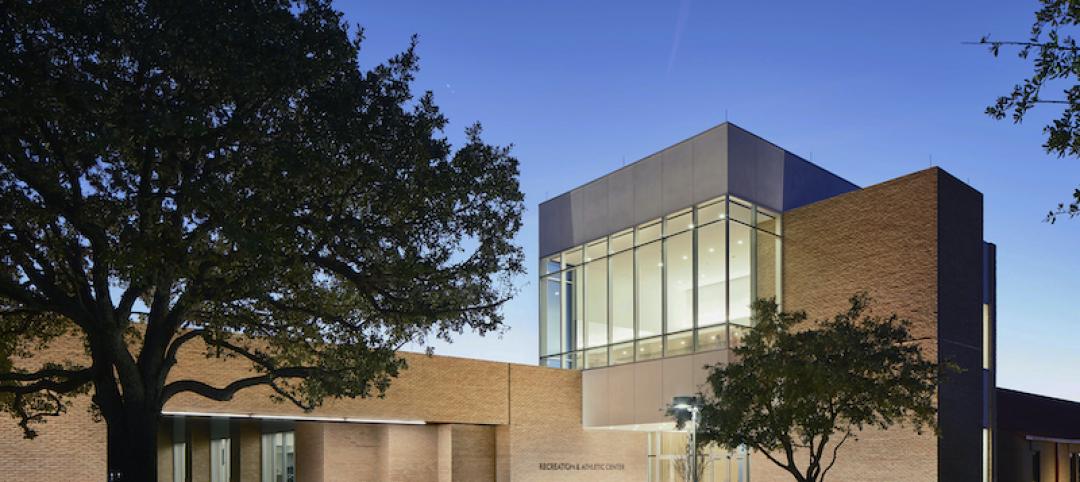In 1871, The Carondelet School, designed by Frederick William Raeder, opened to educate more than 400 children of laborers and manufacturers in St. Louis. It operated for a century before closing in 1976; it subsequently served as a private Christian school before going dark again in the 2000s.
The building is getting a second lease on life, as it has undergone a $2 million renovation by goBRANDgo!, a marketing firm for the manufacturing and industrial sectors, which moved its headquarters from Benton Park, as well as Conflux Co-Learning, goBRANDgo!’s nonprofit incubator, for what’s being called the nation’s first co-learning space where manufacturers and distributors can collaborate and share best practices.
GoBRANDgo! acquired the school in 2019 and launched Conflux a year later, soon after which it started hosting roundtables, webinars, and sharing information. The 26,000-sf Conflux Co-Learning building, with three stories and a basement, officially reopened last November, although some construction had yet to be completed at presstime. Financed with SBA 504 loans for small businesses, the renovation is adding an innovation lab, recording studio, and six teleconference rooms. GoBRANDgo!’s target is for Conflux Co-Learning to have 30 members by the end of 2022, and 100 within the next three years, according to Brandon Dempsey, a Partner with goBRANDgo!.
Right now, Conflux’s educational and collaborative programming is open to the industry. When BD+C spoke with Dempsey in mid-December, Conflux Co-Learning had just conducted a roundtable of 18 manufacturers and distributors on the topic of labor shortages. goBRANDgo! expected to have its first 10 members signed up by February 2022. Membership is $1,000 per month, and is currently confined to midsize companies with annual revenue of between $25 million and $250 million. Dempsey says that because the member companies, by and large, won’t compete, they will be freer to share information about how to drive sales, reduce waste, decrease costs, diversify their customer base, roll out new products, and cope with economic fluctuations.
Conflux Co-Learning also plans a series of guest speakers on a variety of topics relevant to its members’ businesses and growth. The center’s programming is being managed by Matt Menietti, goBRANDgo!’s Executive Director, who most recently served as Director of Innovation & Entrepreneurship for the St. Louis Regional Chamber.
In an interview with Entrepreneur Quarterly, Menietti characterized many of the companies that goBRANDgo! works with as “bedrocks of their communities.” The goal of Conflux Co-Learning, he explained, is “to bring these players together and provide them with meaningful content, relationships, and a community of support to help them thrive.”
Menietti said his organization has had discussions with industry leaders about workforce development. Dempsey elaborates that goBRANDgo! intends to launch an apprenticeship program that members could avail themselves of within the next two years.
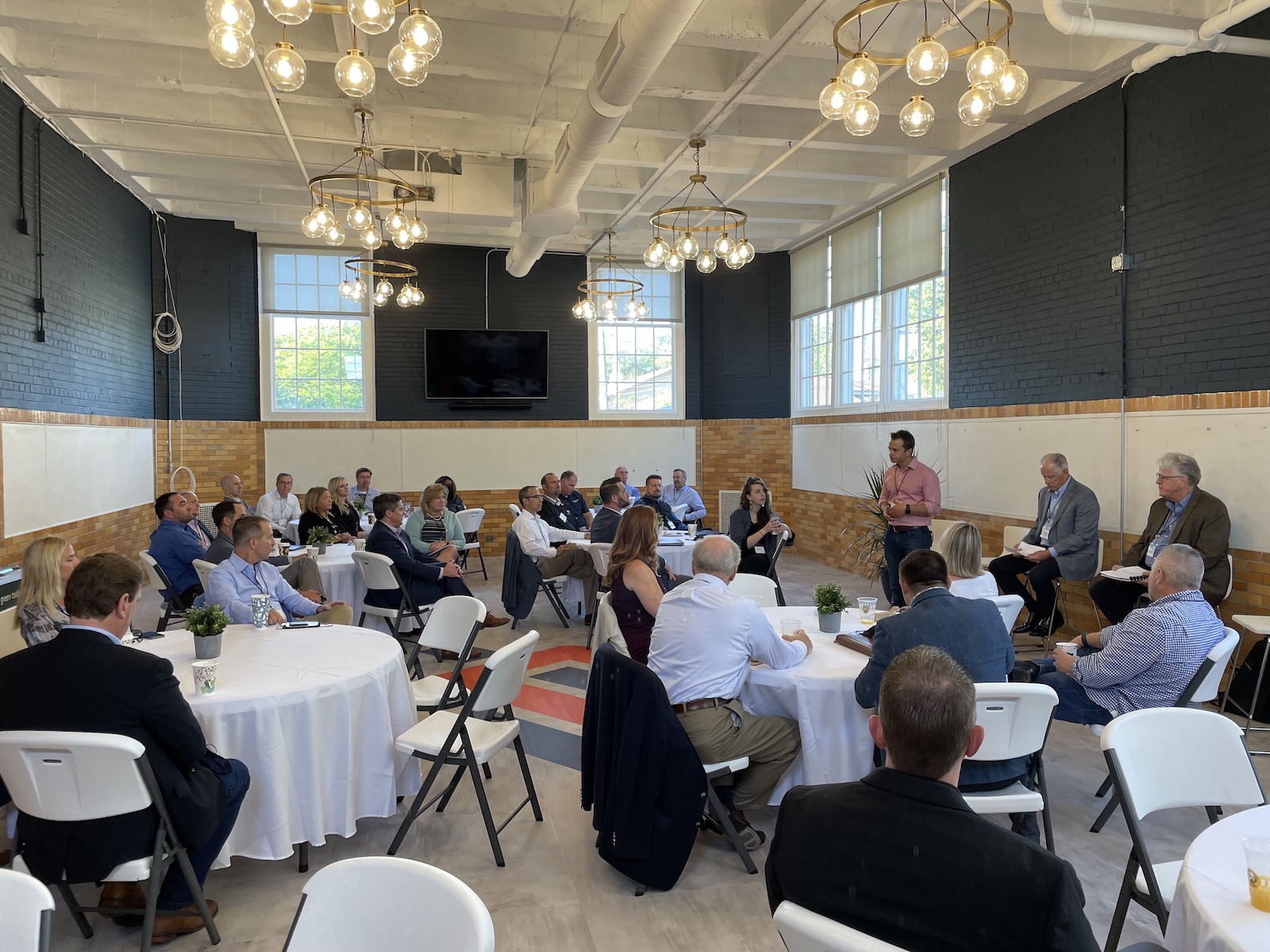
The team that renovated The Carondelet School included Eversoldt & Associates (architect), ReSTL Development (developer and CM), and PAP Engineering (engineer). The scope of the project included repainting the interior and upgrading some of the electrical and HVAC systems. The renovation focused on repurposed and reclaimed materials: Conflux recovered more than 50 tables and chairs from the demolition of the Missouri Botanical Gardens’ Ridgeway Visitor Center, and constructed more tables using reclaimed building materials from that demo.
The biggest part of the renovation, says Dempsey, was removing seven layers of flooring—held down by 650,000 nails, staples, and brads—and restoring the building’s hardwood flooring, more than 2,000 sf of which was built by hand.
Dempsey says he’s getting emails “every day” from companies that want to become Conflux members. The owner of a large, local pasta supplier recently toured Conflux Co-Learning and thought his company could hold its annual meetings there. If Conflux hits 50 members within a reasonable timeframe, Dempsey says he’ll know the concept is working, at which point he would consider expanding Conflux Co-Learning to other manufacturing/distribution hubs like Kansas City, Denver, and Nashville.
Related Stories
Coronavirus | Mar 30, 2020
Learning from covid-19: Campuses are poised to help students be happier
Overcoming isolation isn’t just about the technological face to face, it is about finding meaningful connection and “togetherness”.
University Buildings | Mar 26, 2020
How to convert college dorms to support the coronavirus crisis
While student dormitories are well-suited to certain alternate healthcare uses — from housing clinical staff to treating low-acuity patients — there are important elements to consider when exploring how to convert them for coronavirus treatment.
University Buildings | Mar 24, 2020
Ponce Health Sciences University to build a medical school in North St. Louis
Clayco will build the project.
Plumbing | Mar 13, 2020
Pioneer Industries launches new website
Pioneer Industries launches new website
University Buildings | Mar 9, 2020
Designing campus buildings through an equity lens
As colleges become more diverse, campus conversation is focusing on how to create equitable environments that welcome all voices.
University Buildings | Mar 9, 2020
Auburn University, Robins & Morton open Construction Field Laboratory
Robins & Morton and Auburn University’s College of Architecture, Design and Construction (CADC) recently celebrated the dedication of the Robins & Morton Construction Field Laboratory.
University Buildings | Feb 20, 2020
Kettering University’s new Learning Commons includes a student entrepreneur lab
Stantec designed the project.
University Buildings | Feb 18, 2020
UC Berkeley’s Enclave Apartments features a unique Moorish Castle design
Kirk E Peterson & Associates designed the project.
University Buildings | Feb 10, 2020
Sino-French Aviation University breaks ground in Hangzhou
HENN designed the project.
University Buildings | Jan 27, 2020
St. Edward’s University reveals new Recreation and Athletic Center
Specht Architects designed the building.


